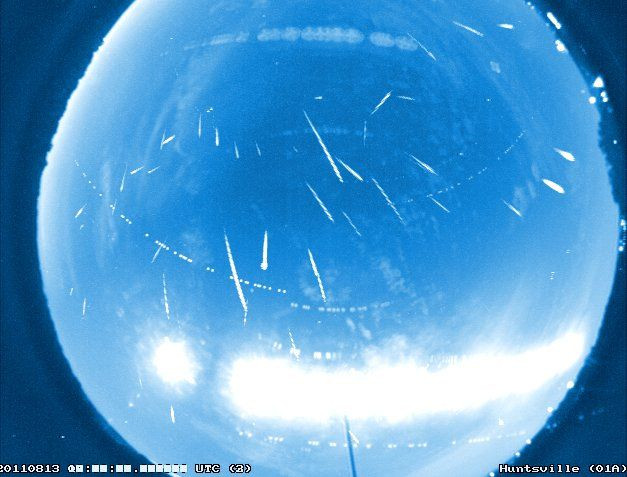Perseid Meteor Shower 2014 Best Viewed Before August Peak

Perseid meteor shower activity may peak Aug. 12-13 this year, but it might be best viewed around now because of the full moon in August, as indicated by NASA. The August supermoon most likely will have Earth’s nearest neighbor dominating the sky the nights before and after Aug. 10 this year. Therefore, amateur and professional astronomers may catch their best glimpses of the Perseids this weekend.
The U.S. space agency crunched numbers last year that cemented the reputation of the Perseid meteor shower as the fireball champion of all annual celestial events. “We have found that one meteor shower produces more fireballs than any other,” Bill Cooke of NASA’s Meteoroid Environment Office said then. “It’s the Perseid meteor shower.”
The Comet Swift-Tuttle, aka 109P/Swift-Tuttle, generates the Perseid meteor shower. Each summer, Earth passes through a cloud of dust produced by the comet as it approaches the sun. At the peak of Earth’s tour of the debris field, as many as 100 meteoroids per hour strike the atmosphere at a velocity of about 133,200 mph. The shower has been, is and will be visible between July 17 and Aug. 24 this year, NASA said.
As customary with almost all celestial events in the night sky -- except the odd supermoon, of course -- light pollution is a key factor in viewing the Perseid meteor shower. Therefore, NASA advised, “The best thing you can do to maximize the number of meteors you’ll see is to get as far away from urban light pollution as possible and find a location with a clear, unclouded view of the night sky.”
The agency noted, “Once you get to your viewing location, search for the darkest patch of sky you can find, as meteors can appear anywhere overhead.” And it pointed out: “The meteors will always travel in a path away from the constellation for which the shower is named. This apparent point of origin is called the ‘radiant.’” In the case of the Perseid meteor shower, the fireballs thus will appear to originate in the constellation Perseus.
Happy hunting!
© Copyright IBTimes 2024. All rights reserved.






















